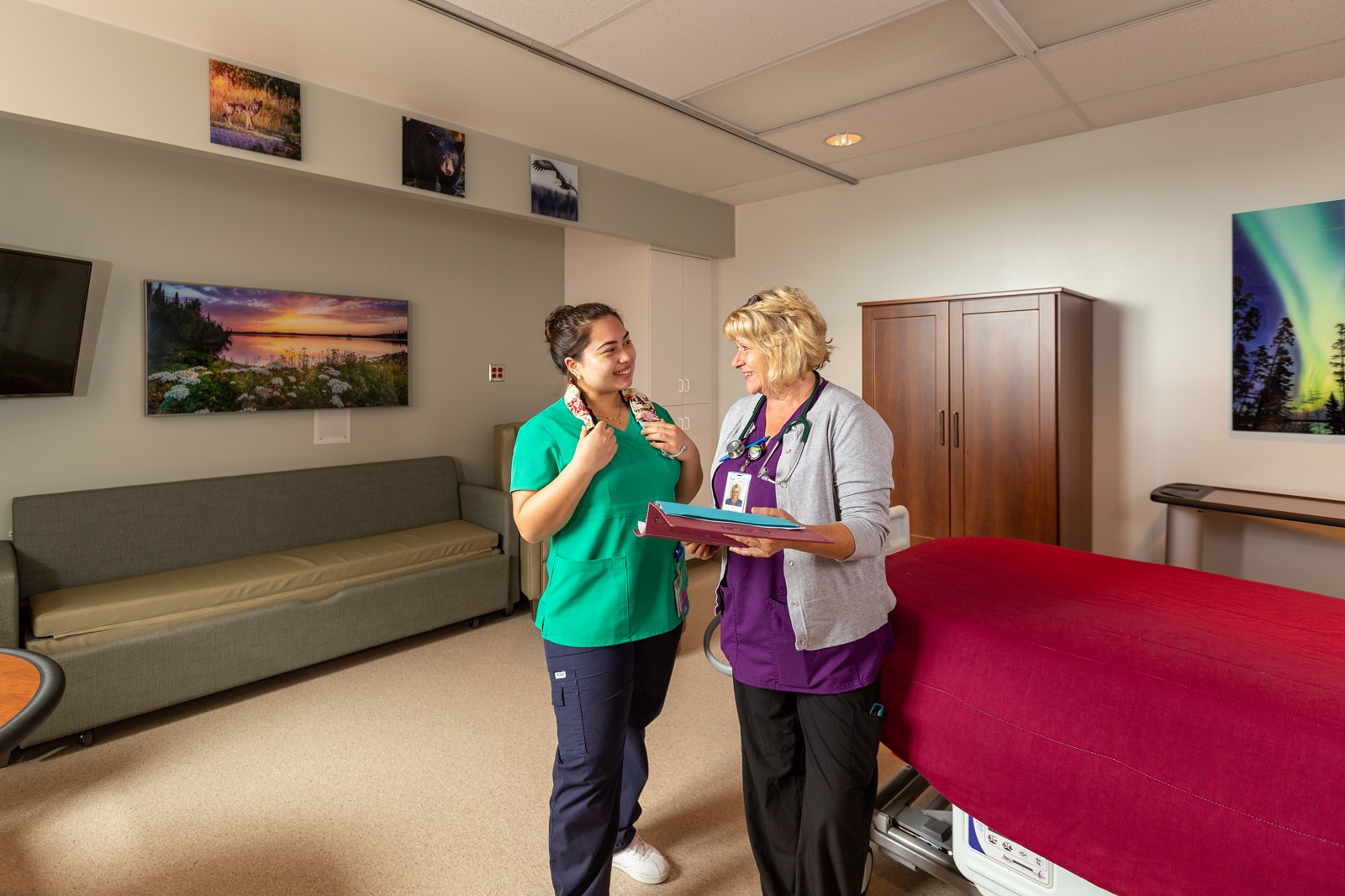As our population grows older and with more vulnerable patients comes an increasing challenge within the healthcare environment to care for them. Chronic disease management is indeed a challenge for all healthcare organizations. A person can present with multiple disease processes and how to care for them in a fiscally restrained system shows that we must integrate services and transform how we have been doing things in the past. This really speaks to transformation. We will embrace new partnerships to ensure we work together so that we accomplish our mission and priorities effectively and efficiently. In a Patient and Family Centered Care model, patients and their families will become partners in their care and will have a voice.
As we head into this new fiscal year at the hospital, we will be developing a new Strategic Plan. This plan will be embedded in a new model of care that the hospital will be embracing. It’s called ‘Patient and Family Centered Care’ or PFCC. This isn’t really a new model for us, as we have put the patient in the centre of care for years. However, with PFCC we will be expanding it to our volunteers and have Patient Family Advisors (PFA) on most of our Committee’s. These will be volunteers who will be a voice at the table representing how to better improve patient quality of care.
Patient Family Advisors (PFA) volunteers, who have experienced care at GDH, will be involved in discussions at the highest levels. They will be involved in Committees such as Quality Improvement, Strategic Planning, the Emergency Department Planning Committee, and Program Development. PFA’s will add balance and valuable perspectives as we move forward with our new Strategic Plan and goal setting.
Accreditation Canada implemented changes to enhance the focus on patient and family centered care. It is now evaluating healthcare service facilities against new requirements that ask organizations to partner with patients and families in planning, assessing and delivering their care. To include patient and family representatives on planning groups and monitor and evaluate services and quality.
We are committed to putting patients and families at the core of all we do—from clinical practice to day-to-day interactions—so they will experience, at every visit, the best and safest health care in a premier care setting.
Patient Family Advisors will have their own Committee that will hold meetings at regular intervals and will have a Terms of Reference to help guide them. As well, we will have a new Committee within the hospital, the PFCC Committee and this committee will have representation from staff, management and PFA volunteers, a well-rounded outlook at issues from all aspects, inclusive of patients.
We look forward to this new model that will enhance and improve quality of care for patients and their families.
Patient and Family-Centered Care Council
Terms of Reference
Purpose:
- Align and integrate patient and family-centered care (PFCC) within the Geraldton District Hospital (GDH) through a change in hospital culture that puts the patient and their family at the centre of their care.
- Work in partnership to create an environment that is inclusive and culturally-sensitive to all Indigenous people.
Responsibilities:
- Create a sustainable system in which PFCC is embedded in all hospital functions.
- Provide leadership, guidance and support to all hospital staff throughout the implementation of PFCC.
- Develop and monitor performance indicators, including patient and staff satisfaction.
- Review metric results and implement action plans to track progress.
- Continue to evolve and implement best practice PFCC strategies.
- Work closely with the Patient Family Advisor Council (PFAC) to ensure that their voice is heard throughout the hospital.
- Encourage collaboration between families and providers of patient care.
- Strengthen communication between patients, families, leadership and staff within the Greenstone area.
- Educate itself on existing Indigenous services within the Greenstone area.
- Offer effective solutions to patient and family concerns.
- Provide education and training that fosters an increased understanding of PFCC values and cultural understanding throughout the organization and community.
- Provide input for programs to meet patient and family needs.
- Provide recommendations on operational issues that affect patients and families.
Goals:
- The Chair will provide direction and support to the council, assist with recruitment of team members.
- Schedule meetings and develop agendas.
- Contribute knowledge as an equal member.
- Monitor performance and initiate corrective action, as necessary.
- Keep the Board of Directors informed of the progress of PFCC.
- Act as a liaison between project teams and other committees.
- Encourage and support patients and families to participate in their care and decision-making at the level they choose.
- Collaborate with patients and families through inclusion to hospital committees, where they will act as advisors and participate in discussions.
- Engage patients and families in partnerships involving healthcare services.
- Involve patients and families in policy and procedure decisions at GDH.
- The elders will lead in prayer and blessings and provide support and guidance on knowledge of traditional teachings and culture.
The Patient and Family-Centered Care Council are responsible for regular updates on PFCC progress to hospital leadership. The Council will provide updates on new initiatives and practices as they plan to become implemented.
Membership:
The Patient and Family-Centered Care Council will have representation from:
- PFCC Lead
- Senior Management
- Nursing Management
- Quality Improvement/Decision Support
- Nursing staff (1-3)
- Chief of Staff
- Physicians
- Patient family advisors (2–5) – one of which is an Elder from a reserve in Greenstone.
